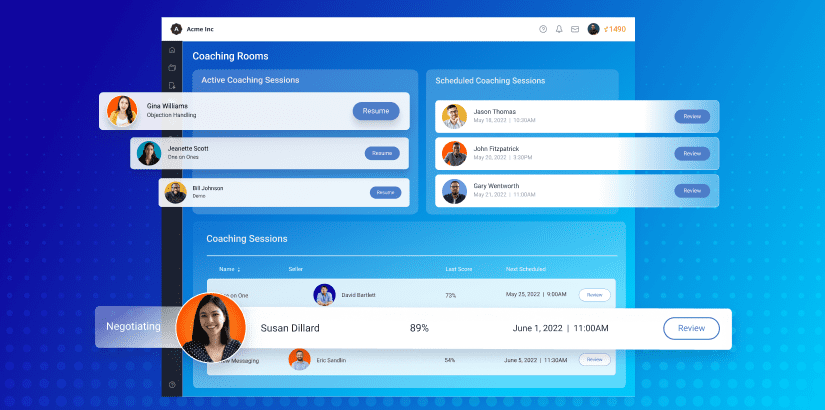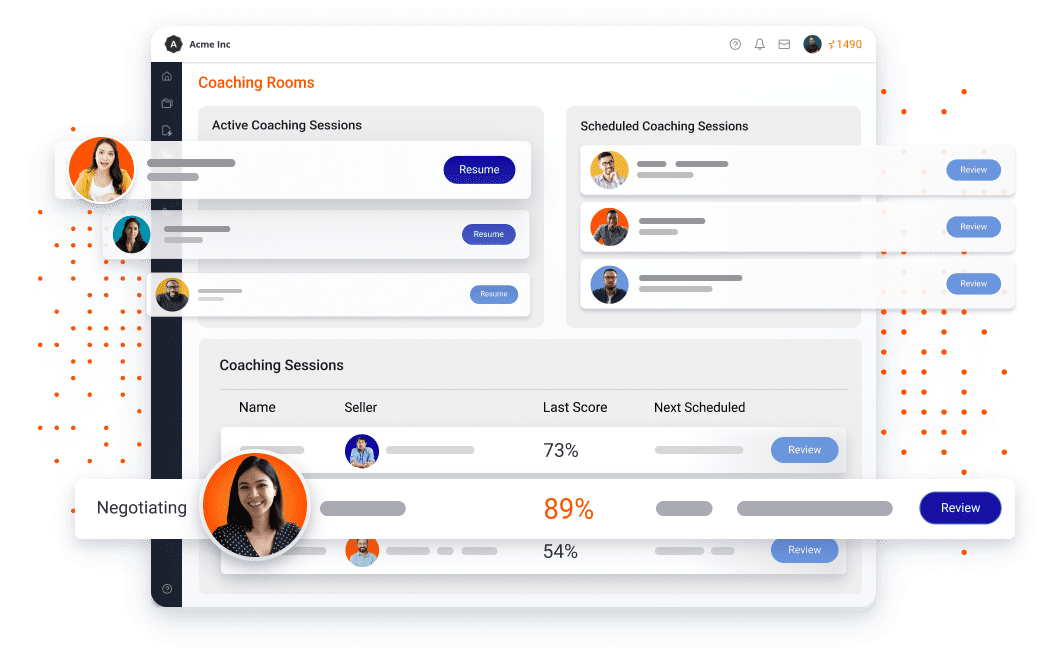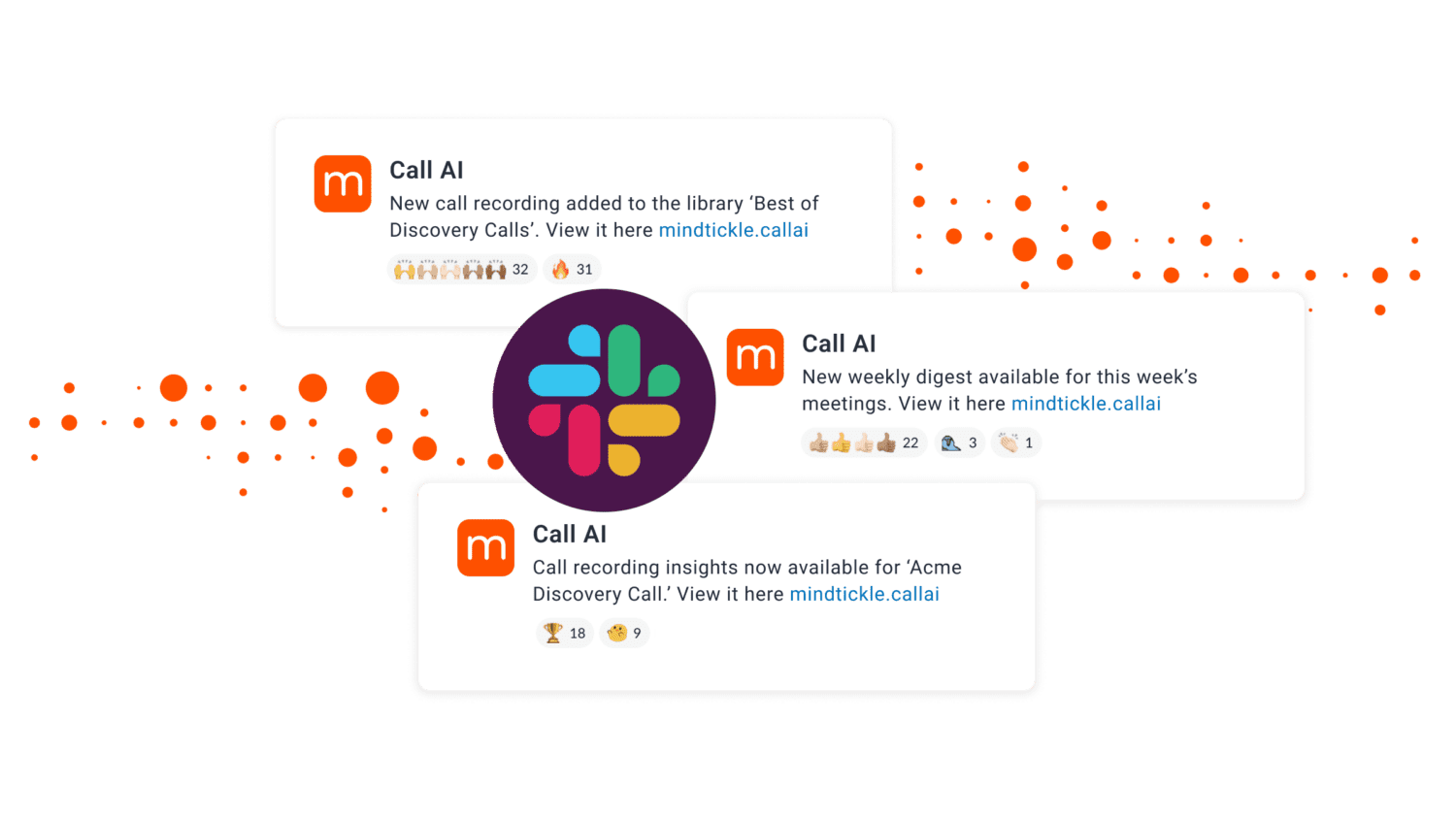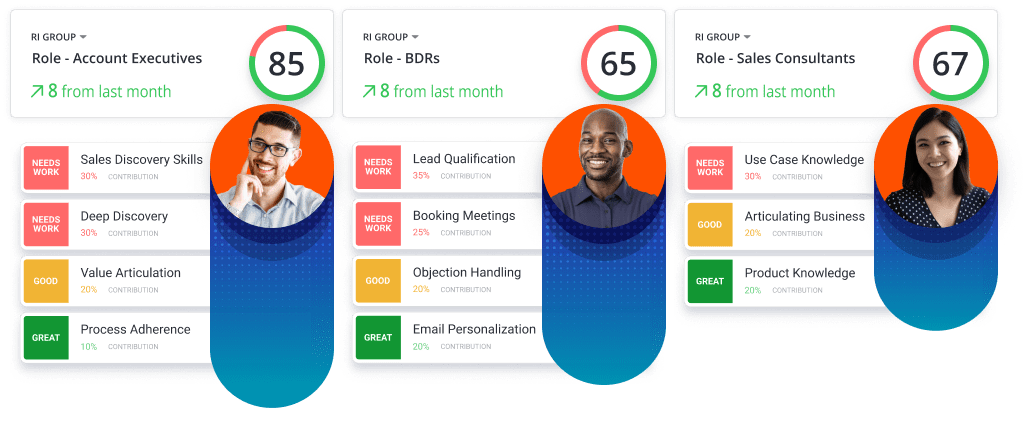No More One-Size-Fits-All Coaching: How to Create an AI-driven Sales Coaching Program
As a front-line manager, it’s difficult to find the time to effectively coach reps on both specific deals and overall skill development. But that doesn’t mean coaching should be excluded from your list of priorities. Dynamic sales coaching is proven to improve both quota attainment and win rates.
How can you optimize your time while ensuring your reps are getting the support they need to progress? A data-driven sales coaching strategy is the key to coaching success.
Set sales coaching goals and expectations with key stakeholders
Before you can introduce a solution, you need to establish the key goals and expectations of implementing a new coaching strategy. Evaluate what isn’t working currently, what needs to change, and what success will look like. Talk to your front-line managers, enablement team, and sales reps. Involve key sales stakeholders early in the process to get their buy-in to establish a coaching culture and make sure you set goals by defining what a successful coaching strategy would result in.
Select a sales coaching technology
Coaching technology is designed to support your coaching initiative not add more work. So, when assessing your options, consider how each solution will fit into your existing tech stack. If a platform creates a clunky experience with other solutions you’re already using, it will likely be more work than it’s worth. You need a tool that is fully integrated and makes life easier for managers and reps alike.
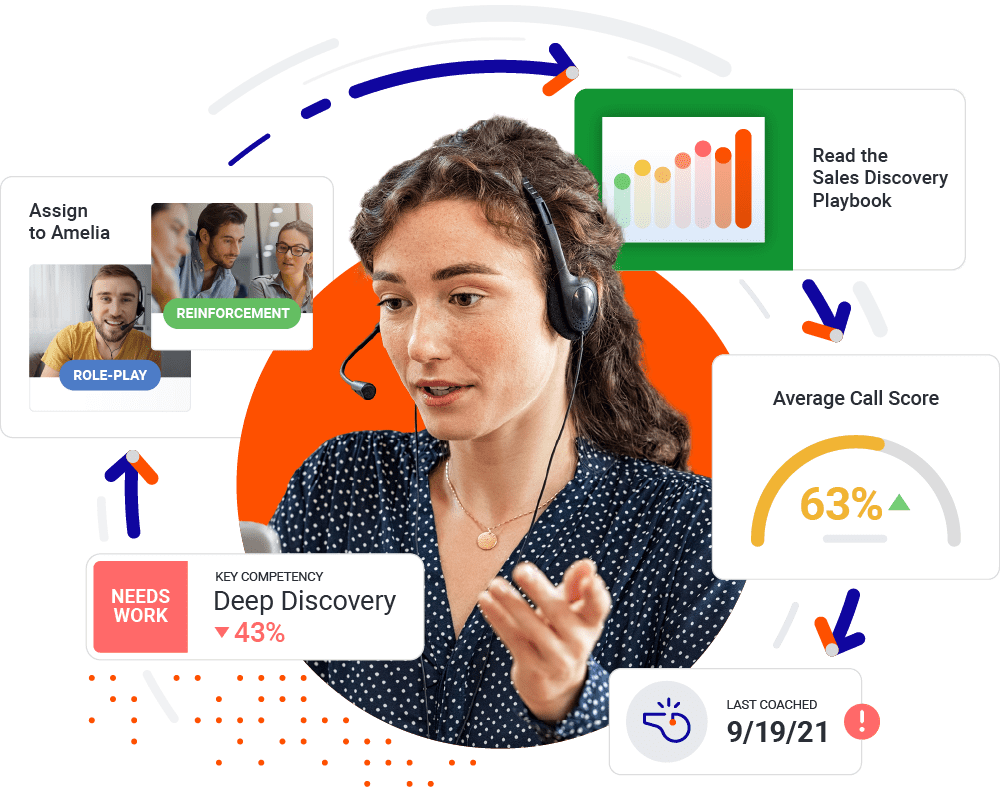

The ideal solution for any sales organization is an all-in-one platform that doesn’t just aid in coaching activities, but also includes content, enablement, and conversation intelligence. With everything in one place, completing daily tasks is seamless, information doesn’t get lost in translation, and you can make more educated decisions when it comes to how you coach your team.
Start at the top: “coach the coach”
Sales enablement focuses on the performance of reps—but what about the managers tasked with coaching and leading them? Many front-line sales managers got their positions through being reps themselves, so it’s not fair to expect them to be experts on effective sales coaching from the jump.
Train managers on your new coaching processes, including how to use the technology to be more efficient. And, just like with reps, provide reinforced learning and measure managers’ coaching performance over time to get the most out of the program.
Prioritize sales coaching with conversation intelligence
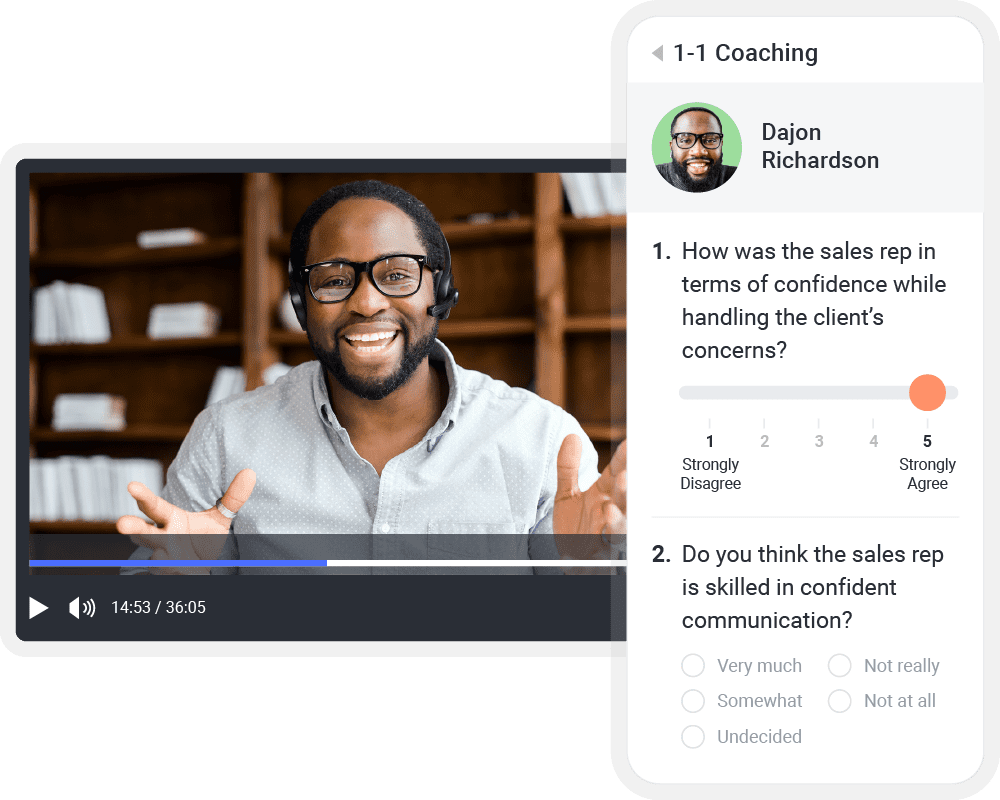

Managers cannot be on every call with every rep and, as a result, have very little visibility into sellers’ skills in the field. Most likely you are tracking how many calls each seller is making and the length of those calls, but this information doesn’t enable you to make informed decisions on how you can help reps improve performance.
Conversation intelligence records, transcribes, and scores calls so reps don’t need to take notes or update the CRM and managers can unlock opportunities for skill coaching. With conversation intelligence, managers can sort calls by score to focus on reps who may need additional guidance, and filter calls by themes to highlight specific skills like negotiation or objection handling.
Self coaching and peer coaching are also effective in getting a new perspective and collaborating as a team within conversation intelligence:
- Self coaching: Enabling reps to evaluate their own call performance allows them to be proactive in their coaching process and come more prepared to one-on-one sessions.
- Peer-to-peer coaching: Using tags and comments on call transcriptions allows reps to share best practices and work together to solve problems and handle common objections.
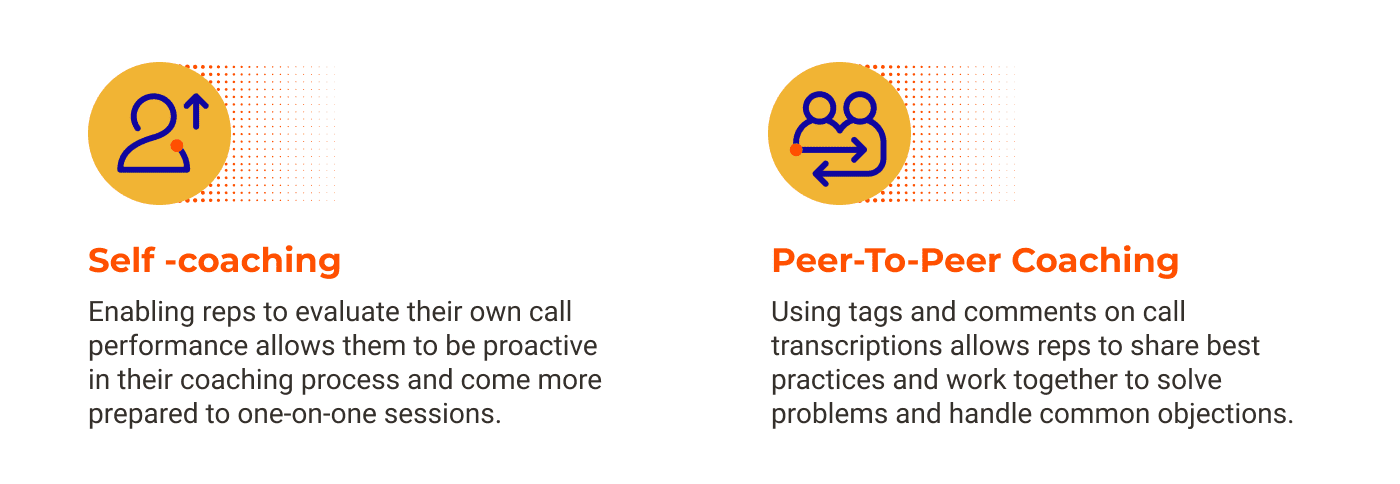

Personalize sales coaching with AI-powered insights
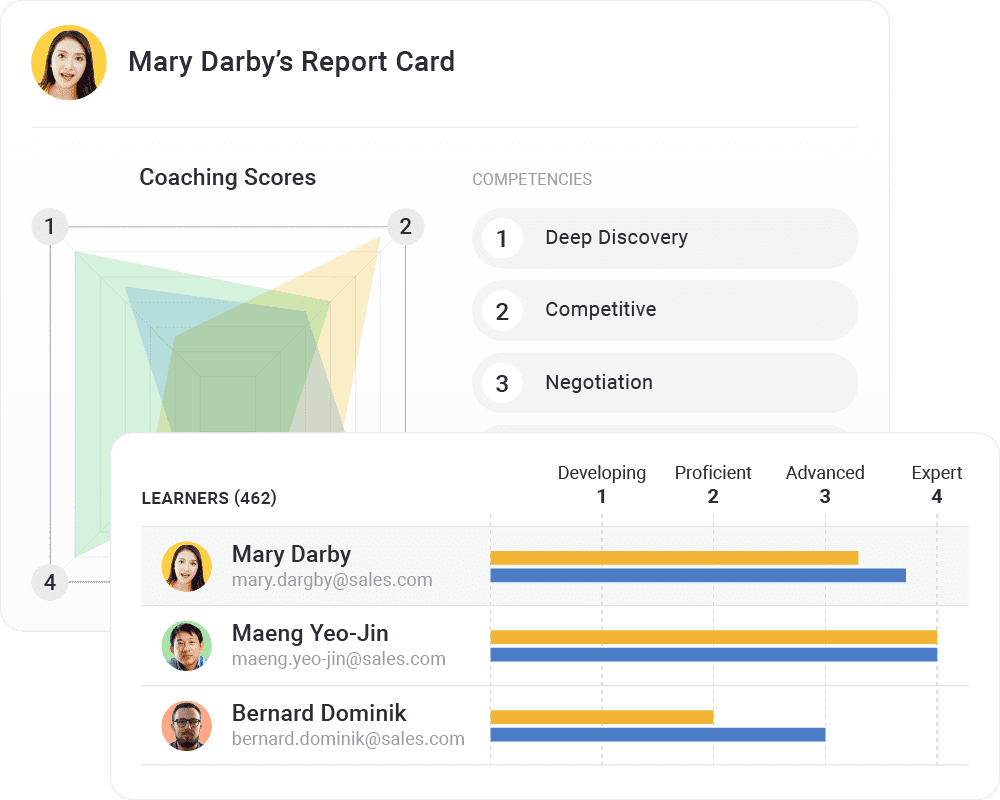

Along with the insights gleaned from conversation intelligence, gather data from your training and enablement platform, as well as your CRM, to understand where reps are excelling and lagging—and determine the best path for coaching them. Every seller has their own strengths and weaknesses, so a one-size-fits-all approach won’t cut it. Artificial intelligence (AI) helps to automate data processing and give smart suggestions based on that data.
Use this information to focus on unique skills and behaviors individual reps are struggling with in one-on-one coaching sessions, and follow up with enablement content to reinforce what was learned.
Go beyond technology
It’s easy to lean heavily on technology to help sellers do their jobs. But the purpose of a sales readiness platform is to supplement—not replace—the authentic relationships managers build with reps. If you truly want to alter performance, you need reps to trust you and take your guidance seriously. You aren’t just a manager; you’re also a mentor.
Beyond data points, the only real way to know what your sellers need is to ask them. Ask them about their career goals and how you can help them achieve these. Together, you can create a plan of action using the methodologies above.
Measure success and refine sales coaching processes
Never assume your strategy is working because you are doing all the “right” things; coaching shouldn’t be a “set it and forget it” program. Periodically revisit the goals you have determined for your sales readiness program — these will change over time as your business evolves and new sellers come onboard. Collect feedback from reps to get their perspective and find ways to refine your program for the greatest impact.
And actually act upon analytics and the feedback you receive. Just like you use performance metrics to improve sales skills, use this information about your coaching approach to pivot and get the best results possible. Your sellers will feel more valued, be happier and more productive employees, and, ultimately, close more deals.
Be ready
Mindtickle’s Sales Readiness Platform takes your sales training, coaching, enablement, and analytics to the next level with automated solutions for sales leaders, sales ops, front-line managers, and more. Unlock powerful insights into rep and team performance and translate those insights into successful coaching across your team.
Get started today by requesting a demo.


